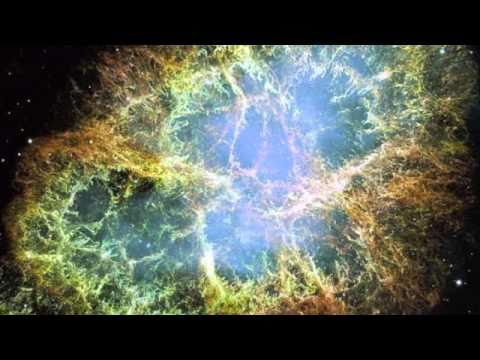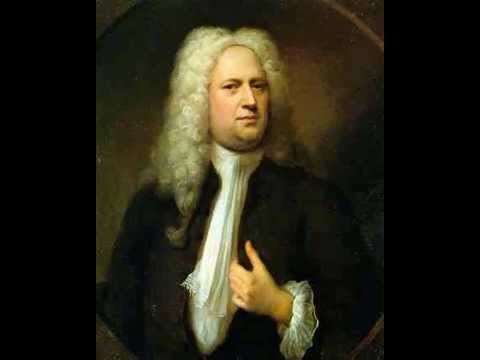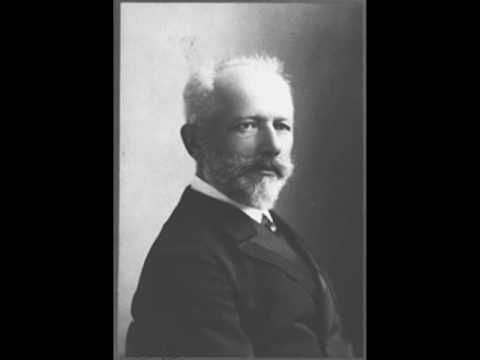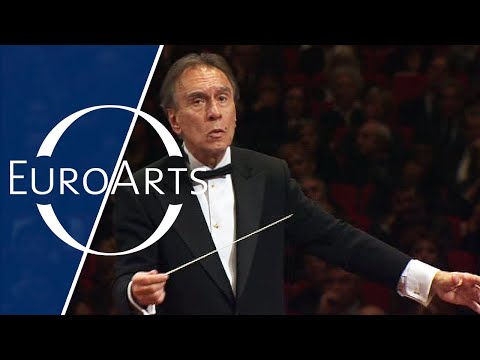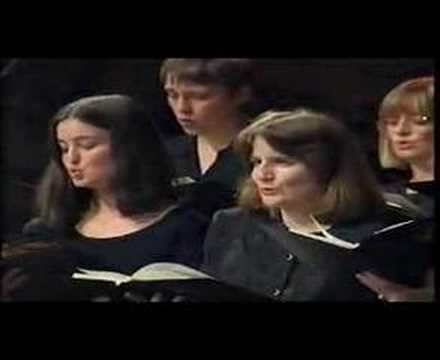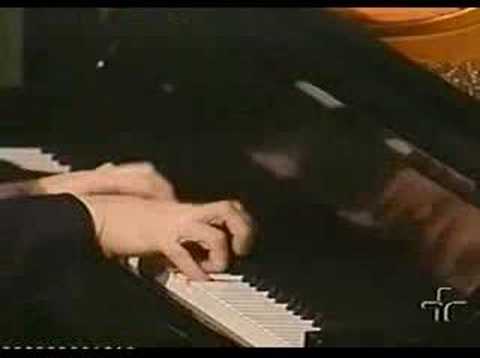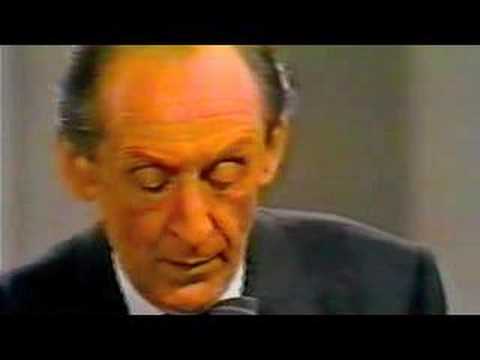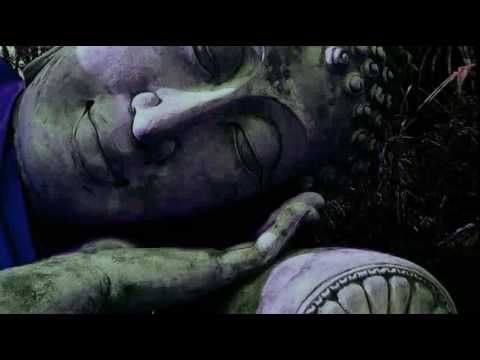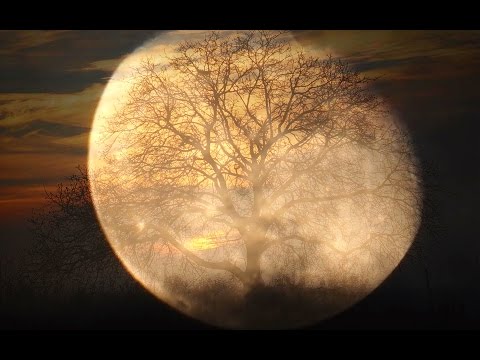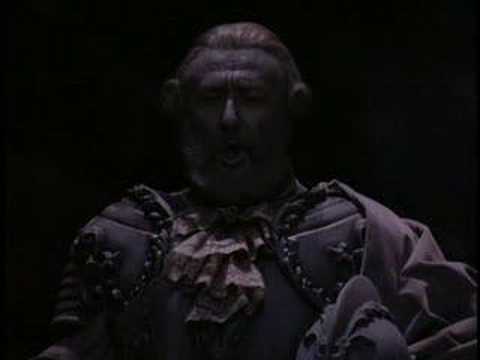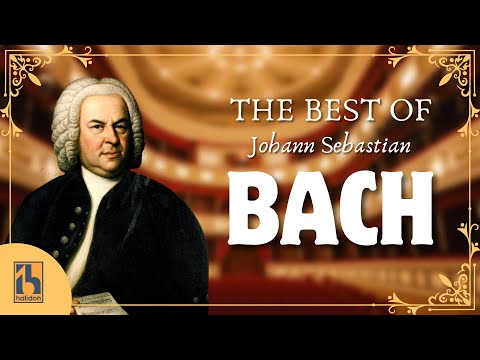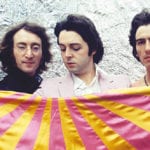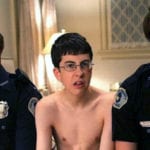SEE ALSO: Top 10 Musicians Who Were Ahead Of Their Time
The father of the modern symphony and the inventor of the string quartet. He wrote 340 hours of music, more than any other composer. His symphonies, though, leave a lot to be desired, as he himself said on his deathbed, “I have just figured out how to use the winds.” They are more like 1 symphony with 103 variations. He invented the string quartet when only three members of an ensemble were able to attend a recital. A violinist, a violist, and a cellist. Haydn quickly re-orchestrated one of his composition scheduled for that evening, for a quartet including himself as a second violinist. He liked the sound so much that he decided to write more music for the orchestration. Also an outstanding opera, oratorio and mass composer, although his operas were intended for Count Esterhazy’s personal opera house. Haydn explained that they should never be performed anywhere else. His string quartets and piano sonatas approach the melodic genius and pristine formality of Mozart‘s. Haydn’s greatest work: his cello concerto, or his “Creation” oratorio (clip above), or his string quartets.
Born in Germany, but traveled Europe and settled in England, as the king’s court composer. He wrote 315 hours of music, second only to Haydn for prolificness. His mastery of all the complexities of the Baroque style is evident in all his works. He invented the modern oratorio, when he wanted to make money during the holy seasons of the year. During those seasons, operas were expressly forbidden to be performed, as they were secular. Handel requested from the king that he compose a musical setting of some story in the Bible. The king allowed this, and Handel wrote in 1732, “Esther,” which was performed by an orchestra and a choir, with soloists singing the parts of the characters, but without acting or costumes. Handel is known today primarily for “The Messiah,” (video above) the greatest oratorio ever composed, in which some of the most famous music in history lies, especially the “Hallelujah Chorus,” which ends the Easter section. Handel also wrote hundreds of concerti grossi, which were the forerunners of the classical and romantic concerto. Handel’s greatest works are the “Messiah,” “Water Music,” and “Music for the Royal Fireworks.”
One of the few composers who was equally virtuosic at performance (piano), and conducting an orchestra. He’s legendary for his second two, of four, piano concerti, the third being probably the most difficult and pianistic concerto every written, containing one of the finest piano cadenzas. He is known for writing large chords of up to five notes per hand, which he could perform easily with his gigantic paws. His shorter works include large-scale piano sonatas, epic enough to be considered concerti without orchestras, and preludes, of which his most famous is the “Prelude in c-sharp minor,” a work which became so famous in his lifetime that he grew sick of playing it. His greatest works are “the 2nd Piano Concerto,” “the 3rd Piano Concerto,” the “Rhapsody on a Theme of Paganini,” (video above) and his sonatas.
One of the finest orchestrators, and one of the supreme melody writers in all of music. Not surprisingly, his favorite composer was Mozart, in honor of whom he wrote “Mozartiana,” an elaboration of several of Mozart’s melodies. Tchaikovsky is the all-time master of the ballet, and all of his are world-famous: the Nutcracker, Swan Lake, Sleeping Beauty. He wrote two operatic masterpieces, Eugene Onegin, and The Queen of Spades. His ballets are well known for their melodic magnificence, but he also wrote six symphonies, the last three of which are universally accepted as legendary for the resplendent orchestration and development of their lyrical melodies. The fourth is also noted for the bombastic, violent, celebratory spirit of its final movement. The fifth is famous as an elaboration of this same spirit, culminating in a complex final movement of victorious, fanfare quality. The sixth is considered by many to be more affecting and better than the fifth or fourth. It is nicknamed “Pathetique,” for its somber, sad emotion. Tchaikovsky was also a master of the concerto, and wrote three piano concerti, the first of which is one of the most famous in history, and one of the most superb for its hyper-romantic, lyrical qualities, and the famous octave passages. Its first movement famously ends with a 1-4-1 cadence, unique to all music up to that time. His violin concerto is world renowned for its technical demands and lush, lyrical beauty. Joshua Bell has compared the final movement to running a three-minute mile. Tchaikovsky’s greatest works are his “1st Piano Concerto,” his “Violin Concerto,” his last three symphonies, his ballets, Eugene Onegin, the famous “Overture to 1812,” (finale video above, listen for the canons!) and “Capricio Italienne.”
The symphonist of death, you could call him. Mahler’s repertoire is quite small compared to that of any other on this list. He only wrote 10 symphonies, the last of which he had not orchestrated before he died. He wrote a symphonic song cycle, “Das Lied von der Erde,” which has been called his finest symphony, though he did not intend it to be considered one, and he wrote dozens of other songs, many preoccupied with death. His first symphony is largely imitative of a more classical sound, but his second begins the career of the Mahler everyone knows when they hear his music. It is nicknamed the Resurrection, and it’s final movement’s premiere was said to have made women pass out, and grown men weep. His third is the longest symphony ever written, at an average performance length of 1 hour and 30 minutes. It also ends with a majestic bravura climax. His sixth is called the tragic, and returns to his roots of a preoccupation with death. The seventh is notable for its last movement, a fanfare extolling the happiness of life on Earth. His eighth is nicknamed “Symphony of a Thousand,” though he hated this epithet, because of the monstrous orchestra it calls for. It is the only symphony scored entirely for orchestra and chorus, the chorus present in all but 12 minutes or so of its 1 hour and 20 minute duration. It ends with the most glorious, heavenly, galactic climax in the history of music, as the characters of Goethe’s Faust sing the final scene, and are lifted to Heaven. Das Lied von der Erde is a song cycle of 6 Chinese Poems praising Earth, which Mahler translated into German. They are the maturation of his compositional style. Mahler’s greatest works are his 2nd, 3rd, 5th, 6th, 7th, 8th symphonies and “Das Lied von der Erde.” (video above).
Italy’s greatest opera composer. Verdi’s operatic output is staggering, with 28 operas, many of which contain arias that have made their ways into popular culture and become mainstays. His mature period produced “Nabucco,” “Ernani,” “Macbeth” (after Shakespeare),” “Luisa Miller,” “Rigoletto,” “Il Trovatore,” “La Traviata,” “Un Ballo in Maschera,” “Don Carlo,” his most famous work: “Aida,” “Otello,” and “Falstaff” (both after Shakespeare). But his finest hour came with the “Messa di Requiem per Alessandro Manzoni.” Verdi, devoutly Catholic, composed in this, some of the most deeply religious, majestically glorious, and terrifying music ever heard. The most famous section, and rightly so, is the Dies Irae (video above), or Day of Anger, which depicts God’s wrath inflicted upon Mankind in Armageddon. This is the most furious incarnation of melody and harmony ever put on paper. The Tuba Mirum, which follows, is the loudest un-amplified music ever written. The score calls for a bass drum played “fffff,” five fortes. Verdi’s greatest works are his mature operas and the “Requiem.”
Brahms was one of the finest craftsmen in music history, refusing to write retrogressions, and adhering very strictly to form. He wrote two piano concerti, of which the second is the most titanic concerto for piano ever composed. It is not as technically difficult as Rachmaninov’s third, but the piano is required to overpower the entire orchestra much of the way through, and this demands a Hercules at the keyboard. He wrote four symphonies, all outstanding, a Requiem in German, his finest work, and one of the greatest violin concerti in history. He was a superb fugue composer. His finest works are 2nd Piano Concerto, Variations on a Theme of Paganini (the same theme Rachmaninov chose), Variations on a Theme of Haydn, A German Requiem (video above “Denn alles Fleisch”), and his Violin Concerto.
The greatest pianist of all time. Liszt sightread Grieg’s Piano Concerto, playing it perfectly the first time he saw the music. He wrote hundreds of short pieces, songs, preludes, etudes, two piano concerti, symphonic poems, and was an all-around master of every genre in which he composed. Most of his piano works are among the most technically demanding, almost impossible, to play, but of note are his Transcendental Etudes, designed for the piano student to master all forms of piano performance. They are probably the most difficult pieces of music ever written for any instrument, and even veteran professionals refuse to play No. 5, “Feux Follets.” (See video above.) If not the Transcendental Etudes, his Sonata in b minor is extraordinarily difficult to play. It is his finest composition.
The most idiomatic composer for the piano who ever lived. Chopin did not understand orchestration, which he freely admitted, and had help from friends, including Liszt, in scoring his two piano concerti. Even so, the orchestra takes a back seat while the piano indulges in the finest filigree work any composer has ever managed. Chopin’s melodic genius is superlative in all respects, and he composed primarily short works piano works, of which the most notable are his ballades, etudes, sonatas, mazurkas, waltzes, nocturnes, preludes, and impromptus. Chopin was the most innovative composer for all of these genres except the sonata. His finest work is his Ballade No. 1, in g minor. (See video above.) SEE ALSO: 10 Wild Drug Stories About Your Favorite Musicians
The quintessential romantic composer. His music is the most German sounding of all. He was a genius in all genres, producing masterpiece symphonies, especially his third, nicknamed “the Rhenish,” for its triumphantly Bavarian quality, his chamber music, especially his Piano Quintet, a monument in the history of music, and his Piano Concerto in a minor, perhaps the finest ever written. His finest works are the Piano Quintet, and the Piano Concerto. He is also well regarded for his huge quantity of vocal music.
The greatest songwriter of all time, and the second greatest master of melodic, lyrical composition. Schubert had a natural mastery of all the forms of the day, but loved songs the most, and wrote them so quickly that as soon as he was finished with one, he threw it to the floor and grabbed another sheet of paper to start another. He wrote “Hark, Hark, the lark,” one of his finest, on the back of a beer hall receipt, in one sitting. He wrote approximately 650 songs in the 16 years of his career. His most famous work is his Piano Quintet, nicknamed the Trout, for the inclusion of one of his songs as a movement. He also wrote masses, nine symphonies, of which the last two are universal brilliancies, sonatas, ballets, string quartets, and operas. His finest works are his 8th and 9th symphonies, his Trout Quintet, ballet music to Rosamunde, Marche Militaire, and some of his songs, Gretchen at the Spinning Wheel, The Erl-King, and Nacht und Träume (video above) among them.
One of the most hateful and unpleasant people who ever walked the earth. Wagner despised Jews, and blamed all the problems of the world on them, but his music transcends all the idiocy of the man himself. He only wrote operas, which he termed “music dramas.” But of them, his finest masterpieces are Tannhauser, Lohengrin, in which you’ll find the world famous “Here Comes the Bride” theme, Tristan und Isolde, which some consider his finest achievement, Die Meistersinger von Nurnberg, Parsifal, and his gargantuan four-opera cycle Der Ring des Nibelungen. These last four operas are the single most famous masterpiece in opera history. Of the top 10 longest operas, seven are by Wagner. The average opera length is three hours. Gotterdamerung, the last of the Ring cycle, is six hours long. More importantly, Wagner invented the leitmotif, a very short melody which represents a character, emotion, event, or object. He revolutionized the art of opera, and operas are not written in any other style today except his, or the Classical style which preceded him. There has been no progress beyond him in operatic art. It has also been said that the art of filmmaking would be set back 500 years, had Wagner not existed. Film soundtracks owe their ability to enhance the story to Wagner alone, who owes his ability to the next composer, and almost all film composers, including John Williams, agree that Wagner is the greatest film composer in history. Films can be set to his music. His finest work is probably Tristan und Isolde, but the Ring cycle could well be equal to it. Everything he wrote, from Tannhauser on (video above), could be his finest work. All his mature works are unparalleled in orchestration, and he is one of the very few opera composers who wrote his own libretti.
The inventor of romantic music. Before him, all that could be said in music had been said (by the next two composers). Beethoven began his career by imitating the styles of Mozart and Haydn, and is considered the third greatest classical composer after them. With his 3rd Symphony, nicknamed “Eroica,” and his 4th and 5th Piano Concerti, the world of music entered its Romantic Era, out of which it may not yet have emerged. The advent of film required that romantic music not be done away with, as the more modern music of Schoenberg, Berg, Webern, etc., was not suitable for the enhancement of drama. Thus, as film’s musical lineage goes directly back to Wagner, it goes back farther, to Beethoven, who influenced Wagner the most. It was Beethoven’s temperament that created his finest, and most idiosyncratic works, among them his 3rd to 9th symphonies, his last three of five piano concerti, his violin concerto, the finest ever written, two masses, one of which is the Missa Solemnis, the second greatest mass ever written, his chamber music, especially his string quartets, the last six of which, the Late Quartets, are universally considered to be among the greatest musical works in history. Of these, Igor Stravinsky deemed the Grosse Fuge of the second to last quartet the greatest piece of music ever written. Beethoven’s 5th Symphony (video above) begins with the single most famous melody in music history. People who don’t even know who he was hum it every day. Beethoven’s finest works are also the finest works of their kind in music history: the 9th Symphony, the 5th Piano Concerto, the Violin Concerto, the Late Quartets, and his Missa Solemnis, although this last work is not quite as glorious as a mass composed by #1 on this list. And he achieved all this despite being completely deaf for the last 25 years or so of his life.
The most gifted musical genius in history, the most famous genius of any field in history, and the perfecter of classical music. He wrote 41 symphonies, 27 piano concerti, a large amount of chamber music, 23 operas, 18 sonatas for piano, 36 for violin, for cello, church sonatas, organ pieces, 18 masses, including one Requiem, four horn concerti, 20 string quartets, serenades, divertimenti, and many others. He was the supreme composer of melody and lyrical quality in music history. All other melodic composers aspired to his greatness, including Schubert, Chopin, Tchaikovsky, Saint-Saens, etc. He wrote his music in full orchestral scores, without corrections of any kind, until late in life when he was sick. His first drafts were his final drafts. His greatest works are all legendary, and cannot be listed entirely, but of them, his Requiem Mass, the greatest ever written, although he only finished half. The second half was finished by his pupil, Sussmayer. His last 20 symphonies or so, his last serenade, nicknamed Eine Kleine Nachtmusik, his 20th through 24th piano concerti, his 15th and 17th masses, in C Major and c minor, respectively, his 12 variations on Ah, vous dirais-je, Maman, which is commonly known as “Twinkle Twinkle, Little Star,” and there are many others. It was because of his perfection of the classical mode, that Beethoven decided not to imitate, but rather to create a new mode. Mozart’s work features, among other things, the finest balance between solo instruments and orchestra. He was one of the finest pianists to ever live, and equally adept at the violin. Probably his greatest single work, for its pristine clarity in all respects, is his opera Don Giovanni (video above).
The greatest composer of music who has ever lived. Bach did not invent any new styles of forms of music, but rather perfected every single one of them which existed in his day. He remains the all-time master of the fugue, a form which is so difficult to write that even Mozart and Beethoven, both of whom wrote fugal masterpieces, hated writing them. Bach, however, improvised fugues for two hours at a stretch, and then wrote them down from memory afterward. Bach wrote universal masterpieces in every genre, including the six finest concerti grossi ever written, nicknamed the Brandenburg Concerti (clip above). He also wrote the finest single work of sacred music in history, the Mass in b minor, which has been argued by many musicologists and composers to be the single greatest work of music of all time, in any genre, in any style. Whereas, most composers did not typically relish complexity, Bach was at home in it. The Sanctus from his b minor Mass is a six-part chorus, including a four-voiced fugue. In the annals of fugal composition, no composer as ever attempted what Bach accomplished, and he did so without difficulty: his monumental Art of Fugue, which is a thorough examination of all the methods by which fugues are written. Using one theme, Bach explains in music all the possibilities of contrapuntal composition inherent in a single musical subject: the fugue, the double fugue, the triple fugue, the quadruple fugue, the stretto fugue, the mirror fugue, canonizing the fugues, etc. If you were to turn the scores of the two mirror fugues upside down and play them, they would sound the same. He wrote in the Baroque style, but his music is as romantic as anything Beethoven or Wagner or Schumann ever composed, and films can be set to it. He is the greatest of all composers, of all time, because of the intellectual depth of his music, the technical demand, and the artistic beauty. SEE ALSO: Top 10 Little Known Influential Musicians
